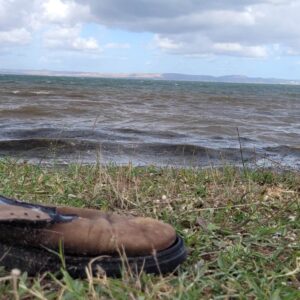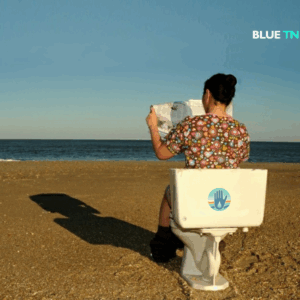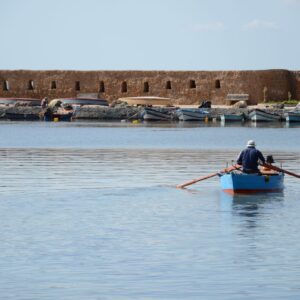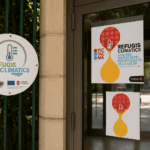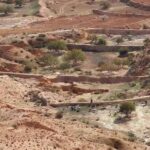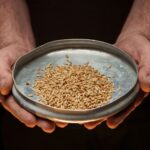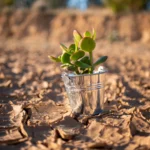North Africa’s aquatic jewel is in serious danger! Located 86 kilometers from Tunis, Lake Ichkeul is the last large freshwater lake in the region, suffering from alarming overexploitation of its water resources, amplified by the devastating effects of climate change. A dramatic drop in its water supply is jeopardizing the exceptional biodiversity and very survival of this unique ecosystem.
Ichkeul, Bizerte, June 2023
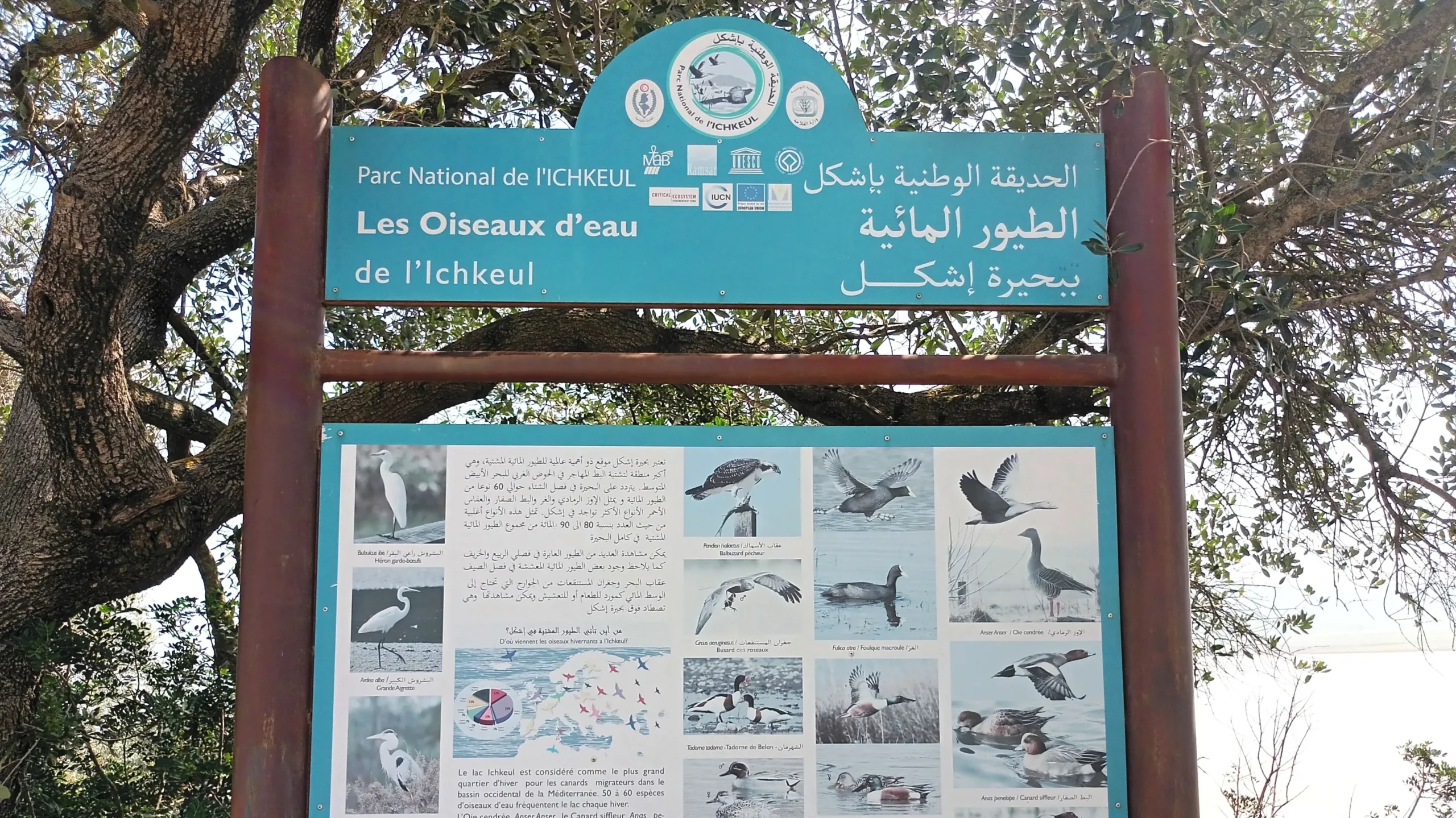
A voice rises from the silent laments of Lake Ichkeul, resonating with love and despair. Mr Jamel May, 56, has been watching over this natural treasure for 35 years, expressing his unwavering passion for birds and his deep connection with nature. However, with each passing day, he becomes aware of the alarming deterioration of this once majestic lake. The worrying drop in water level and the abnormal increase in salinity are major concerns for him.
A powerless witness to climate change, Jamel May speaks out about the threats facing Lake Ichkeul. Global warming, in particular, is at the root of this crisis. The consequences of this degradation are disastrous, compromising the future of the flora and fauna that find refuge in these precious waters.
Once abundantly fed by freshwater springs, Lake Ichkeul is now a victim of the insatiable thirst for water resources on the part of neighboring human activities. Excessive exploitation has reached alarming proportions, depriving the lake of its vital elixir. Reserves are dwindling fast, threatening the fragile balance of this age-old ecosystem.
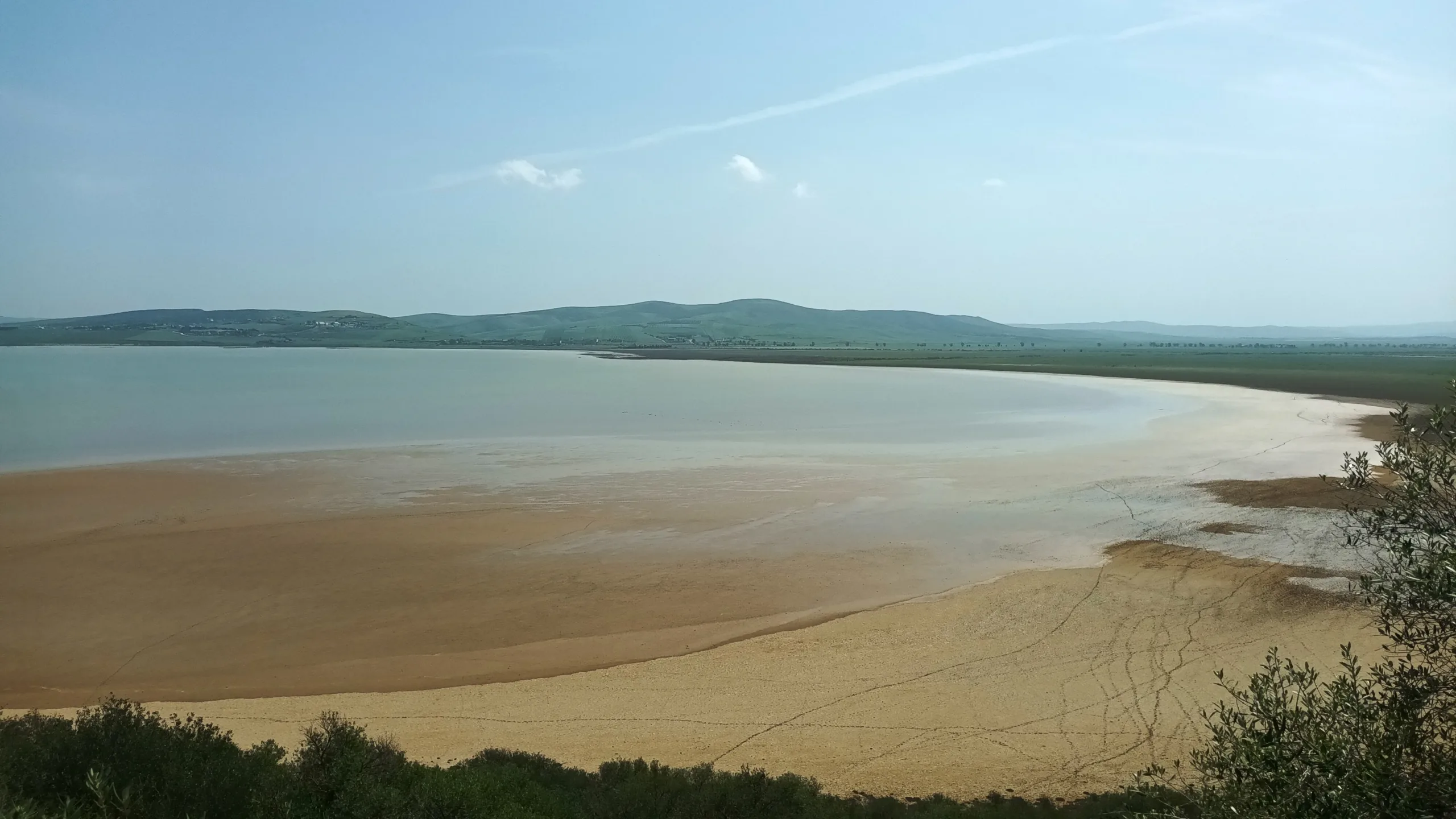
Mr Jamel’s cry of alarm echoes in the heart of every nature lover. The unique biodiversity of this ecosystem is in serious danger. Species of migratory birds that used to find refuge in these peaceful waters on their long journeys are now in danger of losing their ability to rest and refuel, jeopardizing their migration cycles.
Lake Ichkeul, once a symbol of life and fertility, risks becoming a silent witness to the gradual disappearance of its own ecosystem. The ecological and economic consequences of such a loss would be devastating for the region and beyond.
Lake Ichkeul: A natural jewel between two worlds
Immerse yourself in the unique world of Lake Ichkeul, a natural treasure nestled in the heart of North Africa. This last large freshwater lake in the region is distinguished by its exceptional hydrological functioning. As the seasons change, it offers a breathtaking spectacle, with water and salinity levels oscillating like the notes of a spellbinding melody.
For birdwatchers, Lake Ichkeul is a veritable paradise. Hundreds of thousands of migratory birds take refuge here every winter, making it a crucial stopover on their journey. Recognized as a biosphere reserve byUNESCO in 1977, listed as a World Natural Heritage site in 1979, classified as a Ramsar site* in 1980 and designated as an important wetland for bird conservation by BirdLife International in 2001, Lake Ichkeul is a rare gem to be preserved.
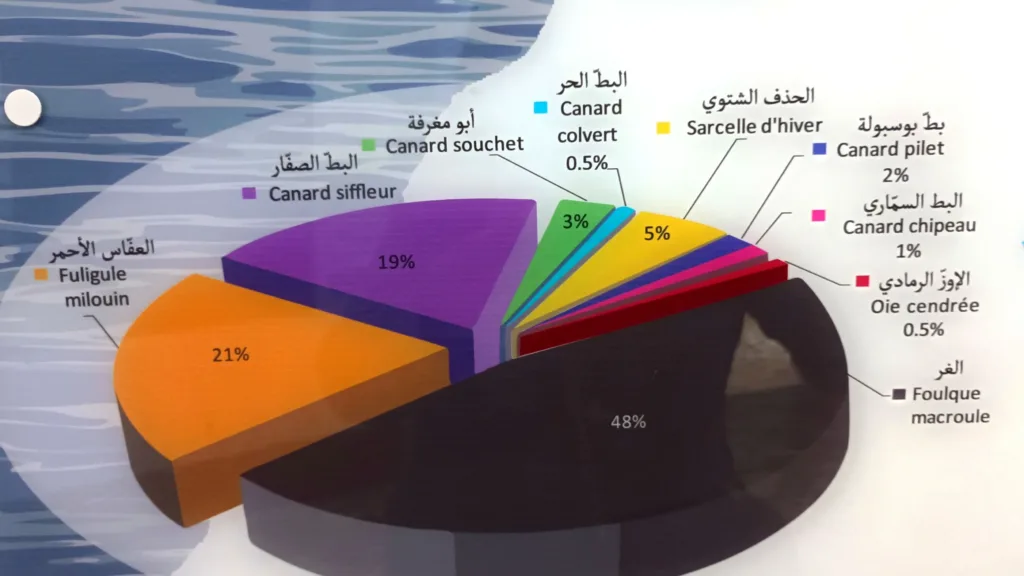
Its hydrological particularity sets it apart in the world. Connected to the Bizerte lagoon via the Oued Tindja, Lake Ichkeul feeds on the fresh waters of its watershed during the winter season. In summer, like a prodigy of nature, it reverses its course and gracefully welcomes the waters of the sea.
Lake Ichkeul is much more than just a place of passage for our winged friends. It is a veritable migratory crossroads between Europe and Africa, attracting thousands of birds every year – an average of 150,000 birds a year.
Its avifaunal density* is five to seven times greater than that of the world’s most renowned winter habitats. Birds don’t just stop here, they also find it a haven for nesting and breeding. Among the most abundant species are coots, scaups and whistling ducks, veritable living symbols of this natural wealth.
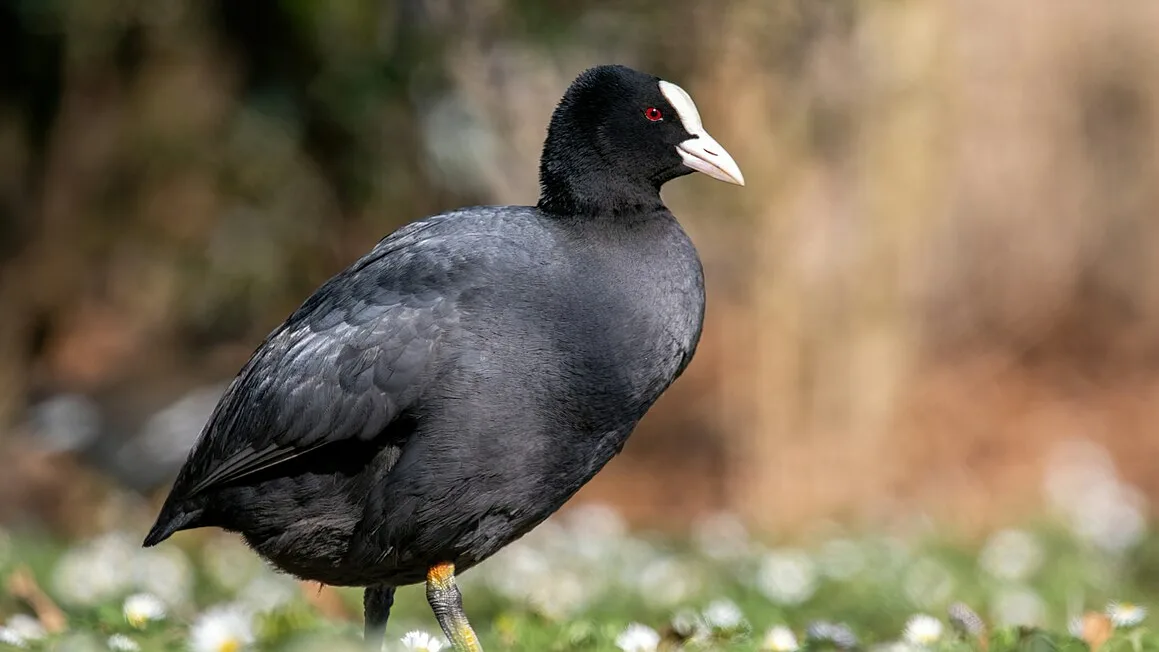
Yet this idyllic picture is overshadowed by a growing threat. Three bird species present in Lake Ichkeul are now in danger of extinction: the white-headed duck(Oxyura leucocephala), the Ferruginous duck(Aythya nyroca) and the Marbled teal(Marmaronetta angustirostris), endangering the fragile balance of this ecosystem. It is our duty, as guardians of nature, to take concrete steps to protect and preserve this globally important heritage.
The waters of Lake Ichkeul under threat: Climate change at the root of an unprecedented crisis
A growing sense of disquiet hangs over Lake Ichkeul, a sight unseen in its thousand-year history. The waters that once flowed freely into the Bizerte lagoon via the Oued Tindja are now being held captive. It’s with a gleam of anxiety in his eyes that Mr Borni Rejeb, head of the Ichkeul nature reserve, sounds the alarm.
Since 2015, the lake has suffered a dramatic decrease in runoff, a situation mainly attributable to the lack of rainfall. The figures are overwhelming: rainfall has not exceeded 400 mm in Ichkeul, whereas the lake has a vital need for 625 mm to maintain its equilibrium. The consequences are disastrous. Global warming, accompanied by rising temperatures, has caused intense evaporation, leading to a drastic drop in water levels throughout the lake. The waters have receded by an alarming 1.5 km. Worse still, sediment has accumulated at the outlet of the lake, clogging the channel and drastically reducing the outflow of water.
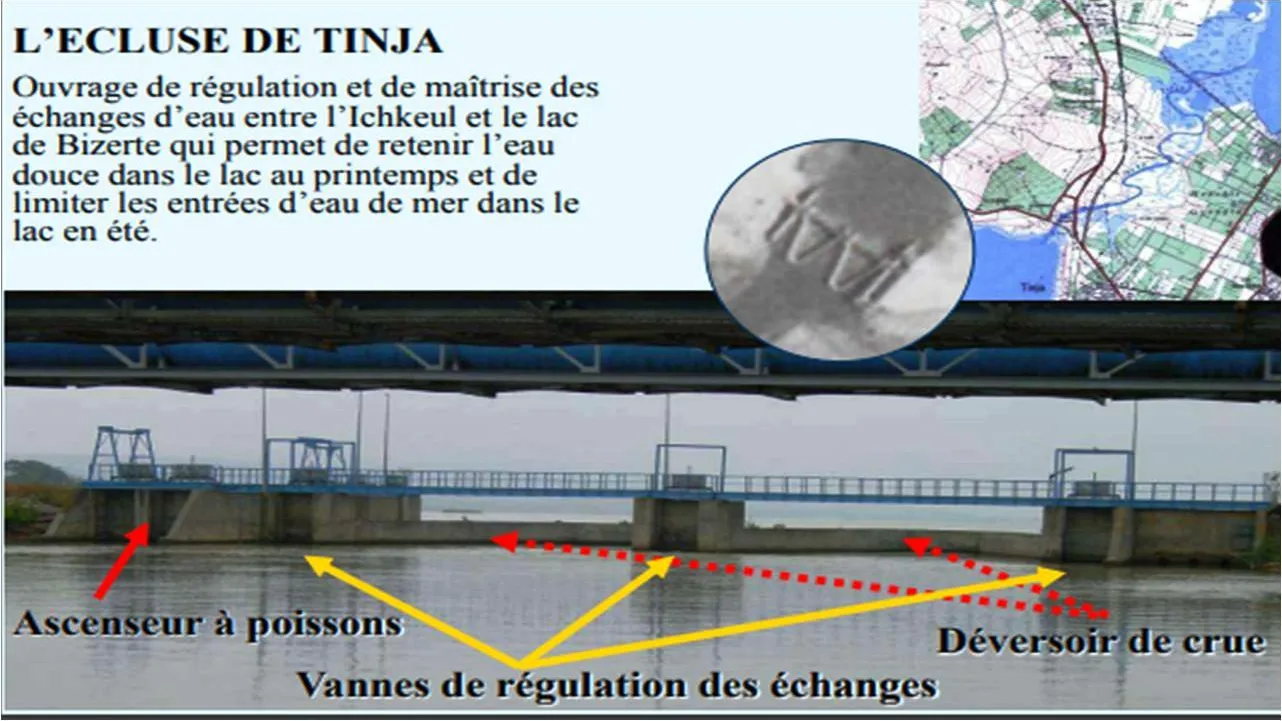
The picture is bleak, and the consequences of this crisis are manifold. The flora and fauna that depend on these precious waters are directly threatened. Migratory birds that find refuge in this haven of peace during their long journeys risk seeing their stay compromised. The fragile ecosystems that have developed around Lake Ichkeul are in danger, as their survival is closely linked to the water balance.
We are facing an unprecedented challenge. Climate change is having a devastating impact on the waters of Lake Ichkeul, threatening the fragile balance of this unique ecosystem. Action is urgently needed to avoid ecological disaster.
Borni Rejeb
It’s a fragile ecosystem that today finds itself at the heart of a veritable struggle for survival. The delicate balance of biodiversity at Lake Ichkeul depends on one crucial factor: salinity, which is directly influenced by the amount of water present in the lake, determined by rainfall, dam releases and water flows via theOued Tindja. Variations in salinity can result in the disappearance or appearance of new plant and animal species, leading to a reduction in migratory bird populations and a deterioration in biodiversity throughout this precious ecosystem.
Lake Ichkeul is fed by six main wadis, which provide the fresh water essential for maintaining optimum salinity. In winter, this salinity reaches 5 g/L, creating an environment conducive to the growth of various aquatic plants characteristic of the lake, such as pondweeds, water lilies and bulrushes. Among these plants, pondweeds play an essential role as the preferred food of over 75% of the migratory birds that inhabit the lake.
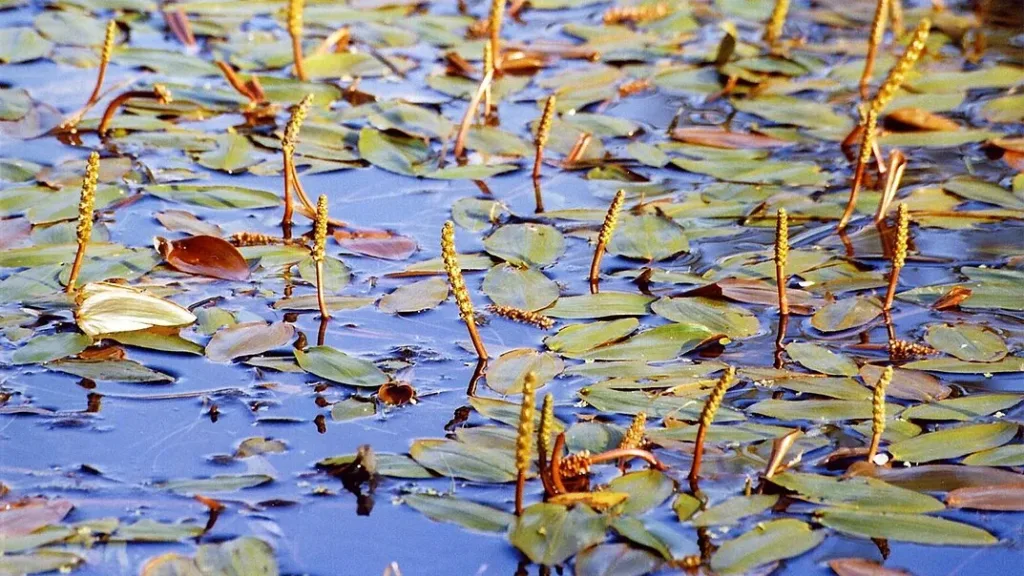
Unfortunately, current salinity exceeds 30 g/L in winter and reaches over 70 g/L in summer. This alarming increase has led to a remarkable decline in pondweeds, jeopardizing the migratory bird populations that depend so heavily on them. This year, no fewer than 125,000 birds chose to move away from Lake Ichkeul, preferring to find refuge elsewhere, an alarming sign of deterioration in progress.
The facts are clear. Increasing salinity is threatening the pondweeds and leading to a dramatic decline in the number of migratory birds at Ichkeul. 125,000 birds have deserted the lake this year, in search of warmer climes. A real alarm bell for the survival of this unique ecosystem.
Borni Rejeb
In 1990, a lock was erected on the Oued Tindja, with the aim of controlling and regulating water flows between Lake Ichkeul and the Bizerte lagoon. It was intended to retain freshwater in the lake in spring and limit the intrusion of seawater in summer. Today, however, the lock remains unused, as a symbol of a management system that no longer meets current needs.
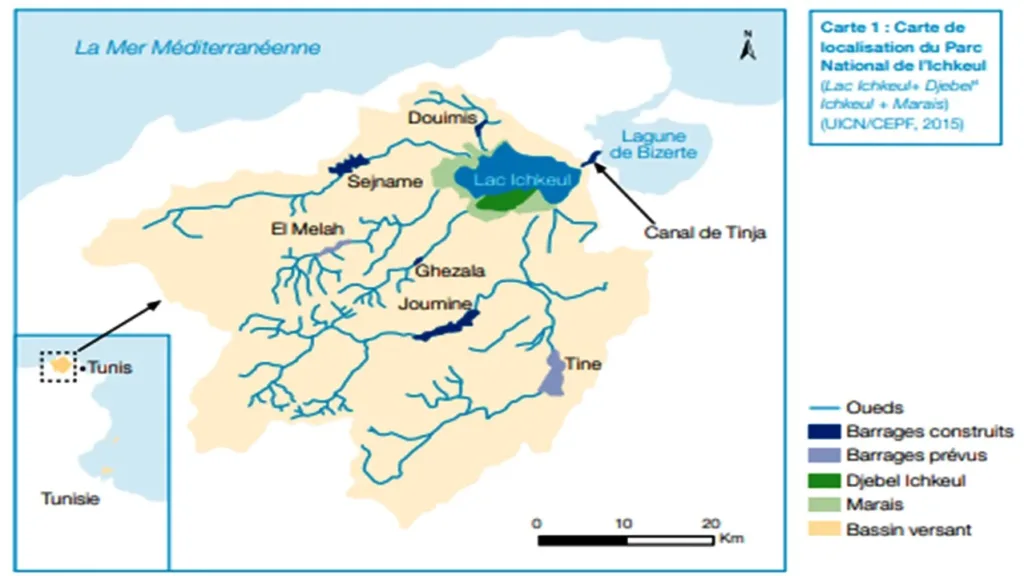
To compensate for this, six dams (illustrated in the map above) were built upstream of the lake, on the six main wadis that feed it: Joumine, Sejnène, Ghézala, El-Malah, Tine and Douimiss. The main purpose of these dams was to supply drinking water and support agriculture. Unfortunately, they have led to a significant reduction in freshwater inflows to the lake. In addition, the accumulation of sediment in these dams considerably reduces their storage capacity, particularly during periods of drought. The consequences are an alarming increase in salinity and the gradual disappearance of the lake’s specific vegetation, as well as the organisms that depend on it, such as the small fish and crustaceans that provide food for the lake’s aquatic avifauna.
Indeed, the quality of vegetation in the lake is of paramount importance in preserving its capacity to host birds. Aquatic plants play an essential role in providing shelter and food for avian species. Reducing this specific vegetation directly threatens the delicate balance of Lake Ichkeul’s ecosystem.
Fishing in Lake Ichkeul: An uncertain future for a precious resource
With the regression of pondweeds, an entire food chain collapses, jeopardizing not only the presence of migratory birds, but also the fauna that plays a crucial role in the diet of commercially-valued fish.
Lake Ichkeul is home to a wide variety of fish, mainly mussels and eels. The fry of these species, originating from the sea, swim upstream through the Oued Tindja to reach the lake, where they remain until they reach adulthood. They then return to the sea via the same wadi, according to the Agence National de la Protection de l’Environnement (ANPE).
However, the drop in water level and siltation of the Tindja canal have considerably reduced the recruitment capacity of fry and hampered their ascent to the lake. In addition, the lack of outflow current prevents adult fish from migrating to the sea. This situation poses a threat to the ecological diversity of the aquatic fauna, limiting the species present to the most resistant.
The introduction of new species into the lake also leads to a reduction in native species in favor of invasive species. This has a negative impact on fish production and, consequently, trade. For example, 90% of eel production from Lake Ichkeul is destined for export, while only 10% is sold on the domestic market.
Lake water depletion: a global problem
“More than half of the world’s lakes and reservoirs are losing water. This is the alarming conclusion of a new study that highlights the reduction in freshwater supplies, directly linked to global warming and mankind’s overexploitation of water resources. This situation threatens the very future of lakes worldwide.
Lake Ichkeul is no exception. Despite efforts to protect this international treasure, the results are far from commensurate with the stakes. Preservation of the lake faces complex challenges, brought on by climate change, water scarcity, overexploitation of resources, economic activities and lack of funding.
Lake Ichkeul finds itself caught in the crossfire: on the one hand, the need to preserve its ecological value and exceptional biodiversity, and on the other, economic development that exerts constant pressure on its resources. This complex situation is making it increasingly difficult to manage and preserve this precious natural ecosystem. We are therefore faced with a crucial question: should we consider artificialising the lake as a necessity, or even an obligation, in order to safeguard this unique and exceptional natural heritage?
Ramsar: A Ramsar site is the designation by a State Party of a ” wetland of international importance” designated under the Ramsar Convention.
Avifaunal: Belonging to the avifauna, or birdlife.
Copyright © 2023 Blue Tunisia. All rights reserved
Sources:
- L’évaluation des impacts sur l’environnement – processus, acteurs et pratique pour un développement durable, 4th edition, sauvegarde du parc national de l’Ichkeul, Tunisie, Presses Internationales Polytechnique.https://www.polymtl.ca/eie/sauvegarde-du-parc-national-de-lichkeul-tunisie
- Half the world’s lakes and reservoirs are losing water. ByLucie Aubourg – Agence France-Presse in Washington, May 18, 2023. LE DEVOIR.https://www.ledevoir.com/environnement/791311/la-moitie-des-lacs-et-reservoirs-du-monde-perdent-de-l-eau
- Economic value of ecosystem services in Ichkeul National Park, Tunisia. By Hamed Daly-Hassen. https://www.ramsar.org/sites/default/files/documents/library/valeur_economique_ichkeul_f.pdf
- Ichkeul National Park https://whc.unesco.org/fr/list/8/
- Ichkeul National Park (Tunisia): a retrolittoral wetland with vulnerable landscapes. Contributions of a geohistorical reading. By Nathalie Carcaud https://journals.openedition.org/paysage/522
